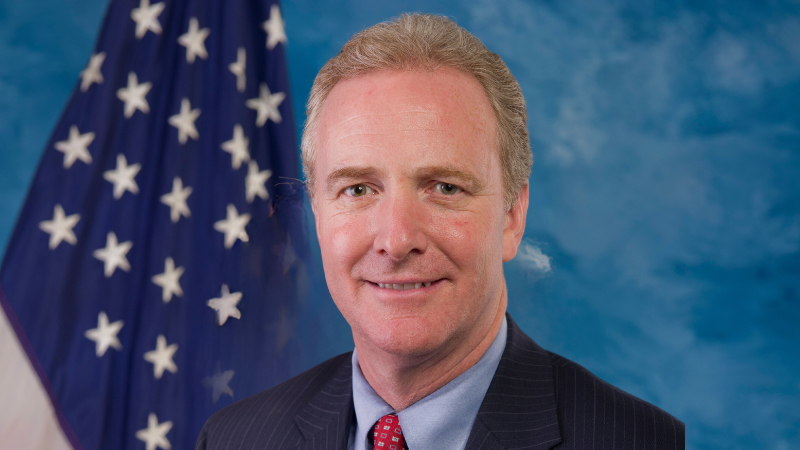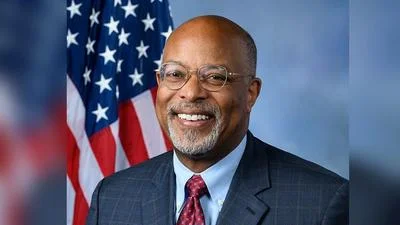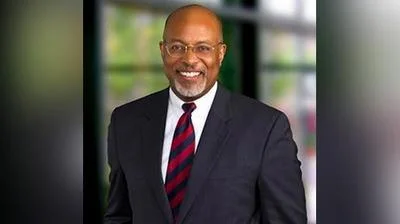Chris Van Hollen | Official U.S. Senate headshot
Chris Van Hollen | Official U.S. Senate headshot
On Friday, U.S. Senators Chris Van Hollen and Ben Cardin (both D-Md.) joined Baltimore Community Lending (BCL) leadership and small business owners to highlight the $1 million they fought to secure in the Fiscal Year 2023 appropriations package to support the renovation of BCL’s new Small Business Development and Resource Center and office headquarters. The Senators secured this federal funding as part of their effort to increase economic opportunity in disadvantaged communities. These funds will help further BCL as a resource for small business owners to connect and gain access to business incubation, funding, business development knowledge, training, and technical assistance.
Baltimore Community Lending, a minority-owned Community Development Financial Institution (CDFI) in Maryland, is a critical resource for expanding access to capital and other financial services in historically underserved communities and has served the community since 1989.
“Baltimore Community Lending is making this City stronger through their revitalization and community development efforts that span from financing affordable housing to loans for small businesses to one-on-one coaching for entrepreneurs. That’s why we fought for federal funding for BCL’s Business Development and Resource Center, so they can continue to be a positive economic force helping spur equitable growth and opportunity for Baltimore workers and small businesses,” said Senator Van Hollen, Chair of the Senate Appropriations Subcommittee on Financial Services and General Government.
“Federal investment in mission lenders like Baltimore Community Lending empowers these financial institutions to expand resources in traditionally underserved communities. Lending opportunities for entrepreneurs and small businesses strengthen Baltimore and our entire state’s economy,” said Senator Cardin, Chair of the Senate Small Business and Entrepreneurship Committee. “I’m proud to help deliver this funding and will continue to invest in these institutions as they provide needed support across the small businesses community.”
"It takes a village to make the Business Development and Resource Center a reality. The village is the Federal, State, local government and all stakeholders who have come together so we can continue supporting small businesses for years to come,” Watchen Harris Bruce, President and CEO, Baltimore Community Lending.
“Starting and growing Lightning Electric has been no easy feat. But Baltimore Community Lending believed in me. They saw beyond my past and my age, and that's the reason I stand before you today. They have provided invaluable assistance, from helping us with our business plan to guiding us through loan applications and the complexities we face as minorities. Let's make sure that no dream goes unrealized due to a lack of opportunity. Together, we can build a stronger, more inclusive society,” said Sekwan Merritt, Founder, Lightning Electric.
“I learned a quote a long time ago that states when opportunity meets preparation, the result is success. Baltimore Community Lending supports minority business owners like myself by providing an opportunity to secure capital and through their technical assistance and business development resources. They give us the support we need to reach success,” said Bianca Wise, President, Home Helpers Home Care Baltimore.
The Senators also recently announced $4,957,678 allocated through the U.S. Department of Treasury’s Community Development Financial Institution Equitable Recovery Program (CDFI ERP) for Baltimore Community Lending to spur economic growth and create job opportunities in underserved communities that have been disproportionately harmed by the COVID-19 pandemic. The lawmakers fought to increase emergency funding for CDFIs throughout the pandemic, including by creating the CDFI Equitable Recovery Program through the passage of the Consolidated Appropriations Act of 2021.
Community Development Financial Institutions (CDFIs) are community-based banks, credit unions, loan funds, and venture capital providers that expand access to financial services in low-income or underserved communities. CDFIs use their financial resources to foster economic opportunity in neighborhoods that have historically lacked investment. CDFIs are supported through the U.S. Department of Treasury’s CDFI Fund, which has awarded more than $7.4 billion to CDFIs, community development organizations, and financial institutions since its creation in 1994.
Original source can be found here.





 Alerts Sign-up
Alerts Sign-up